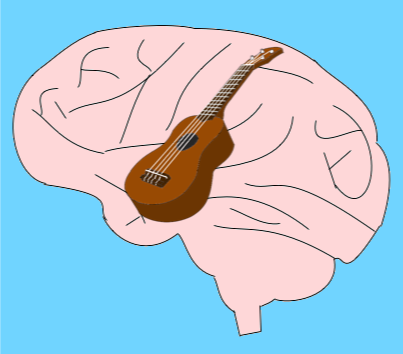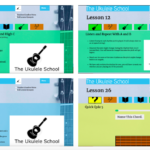Every so often an article or post appears extolling the virtue of music as a way of making our students more attentive/better listeners/better team players/more intelligent, and whilst many of these are true, music can truly be at its best when it is used as part of the every day fabric of lessons. We want to see music in the wider curriculum as a tool teachers can call upon when teaching just about any subject.
Music and Memory.
Try reciting the alphabet to yourself, think about how you learnt it. Did you, in the back of your brain, sing it to yourself? Whichever tune you used (I’m personally not a fan of using twinkle twinkle as the letters don’t fit properly) you probably learned the alphabet through song. It works for virtually any long sequence. This is because music and memory are very closely linked in our brains. As I was growing up my parents – both clergy, encouraged me to learn the books of the Bible by singing them to the tune of ‘The Ash Grove’ it hasn’t helped me much in adult life (barring the odd pub quiz where it’s amazingly useful) but it is something I can still do many years later just by singing the tune through in my head.

Singing in the classroom
Having established that singing a song is a great way to remember things, it seems obvious that teachers should be using it as quick and simple way of getting children to remember basic facts. Sadly we find ourselves in a situation currently where many non-specialist music teachers find themselves intimidated by the idea of singing in front of the children especially if it is unaccompanied. This is where the ukulele comes in. As a musician I have no personal problem with singing but also having a low bass voice (less familiar in sound to the students) I used to find that there would be giggles the first time I tried singing to pupils. The ukulele has largely changed that as it gives me an instant accompaniment as well as a physical barrier of sorts between me and the pupils. With just a few chords it is possible to play a huge range of songs and even make your own up. If your class is learning ukuleles as well you can get them to play along as well, which takes a huge amount of the attention off the teacher and onto the song itself.
Finding songs.
Youtube is a great resource for finding songs on all sorts of subjects but it still won’t have everything you need and some of the songs may not be of a suitable age bracket for your pupils (either aimed too old or to young). Song books will help in some areas, but here at The Ukulele School we would love to see teachers everywhere happy to make their own up. Try starting out by just using an existing tune to sing a list to – see the alphabet sung to twinkle twinkle. You may need to try a few different melodies before you find one that scans properly but most words will fit to most tunes with a bit of tweaking. As you become more confident you may even start to find yourself writing your own short melodies, they don’t need to be anything professional to work in the classroom as long as it’s catchy, a bit silly might even turn out more memorable. Lyrics don’t have to rhyme but it sometimes helps if they do. Remember, writing lyrics is just poetry so write a short funny rhyme and then try singing it over some C, F and G Major chords. Even better try getting the pupils to compose the songs themselves!
Ukulele Revolution

Here at The Ukulele School we want to see ukuleles being used everywhere, not just in music lessons. Wouldn’t it be great if at any given moment in a lesson the whole class or just a few pupils could grab some ukuleles, and write/sing a song to help them learn or revise? The ukulele is the perfect instrument: small, affordable and great for accompanying singing. Find out how you can join our ukulele revolution and help make our vision a reality here.
More from The Ukulele School

